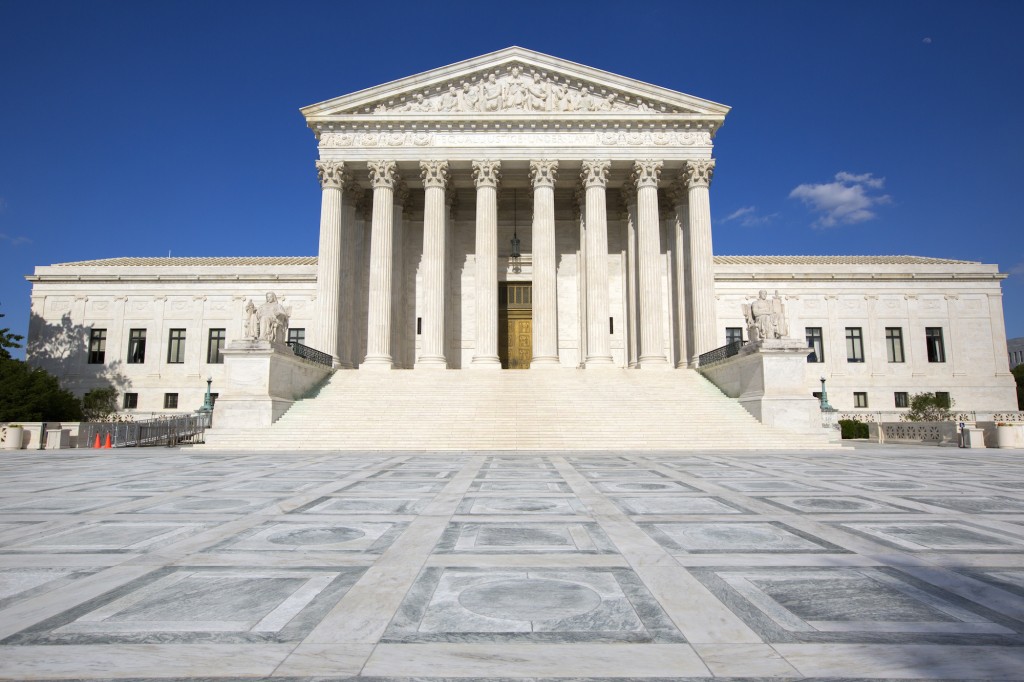
Supreme Court Accepts Religious Nonprofits’ Cases Against The HHS Contraceptives Mandate
Chelsea Langston
The US Supreme Court has agreed (Nov. 6, 2015) to hear the cases of multiple religious nonprofit organizations that face steep IRS fines because their religious tenets preclude them from including in their employee health plans contraceptives that may cause abortions (or contraceptives in general). The Obama administration has provided an “accommodation” that it claims satisfies their religious conscience concerns, but they disagree. The Court will have to decide.
The cases involve the Little Sisters of the Poor, Houston Baptist and East Texas Baptist Universities, Priests for Life, South Nazarene University, Geneva College, and the Roman Catholic Archdiocese of Washington, and Pittsburgh-area Catholic institutions (the Zubik case). The administration has exempted churches from the HHS contraceptives mandate, but only provided varieties of an accommodation to religious nonprofits.
In the accommodation, a religious nonprofit can instruct its health insurer (or Third Party Administrator) to exclude some or all of the contraceptives, but then the insurer or TPA must make sure that the nonprofit’s employees get coverage of exactly those supposedly excluded drugs and services. It’s a two-step process but with the same result as if there was no accommodation; in fact, using this process is a way of fulfilling the mandate, not avoiding it because of religious concerns, according to the government.
According to the Becket Fund, the Little Sisters of the Poor, who provide care for more than 13,000 impoverished senior citizens, “had no choice” but to ask the Supreme Court to take up its cause yet again because of the government’s continued refusal to grant an accommodation to the Little Sisters. Sr. Loraine Marie Maguire, Mother Provincial of the Little Sisters of the Poor, pointed out: “The government exempts large corporations, small businesses and other religious ministries from what they are imposing on us–we just want to keep serving the elderly poor as we have done for 175 years.”
Many federal appeals courts have ruled that the accommodation provides sufficient religious freedom protections, and many commentators agree, claiming that the Little Sisters and other groups are demanding a kind of purism that is unreasonable.
But their claim is not that far-fetched.
Imagine that a federal regulatory agency passes new regulations requiring every college to provide and pay for cable for all of its students in their dorm rooms. A religious college is ready to comply, having installed all of the cabling and equipment.
Imagine, now, that the federal agency adds a new requirement: the cable package must include adult entertainment, paid for by the colleges, with no exceptions for religious colleges. However, after the predictable public backlash, the agency backtracks and devises an accommodation: a religious college need not pay for the adult channels but can instead certify to the government its religious objections to this. As soon as the government receives the certification, then it will pay the cable company to supply all of the adult channels over the college’s cable TV system.
Such an accommodation clearly would not provide actual protection for the college’s religious concerns. Neither does the accommodation in the case of the contraceptives mandate, according to the Little Sisters and the other religious nonprofits that have sued the federal government. What they seek, and what they hope the Court will require, is an actual exemption from the mandate.
That need not mean that women cannot have easy access to free contraceptives—the goal that the federal government says justifies its pseudo-accommodation. As Becket Fund Senior Counsel Mark Rienzi has stated: “It is ridiculous for the federal government to claim, in this day and age, that it can’t figure out how to distribute contraceptives without involving nuns and their health plans.”
